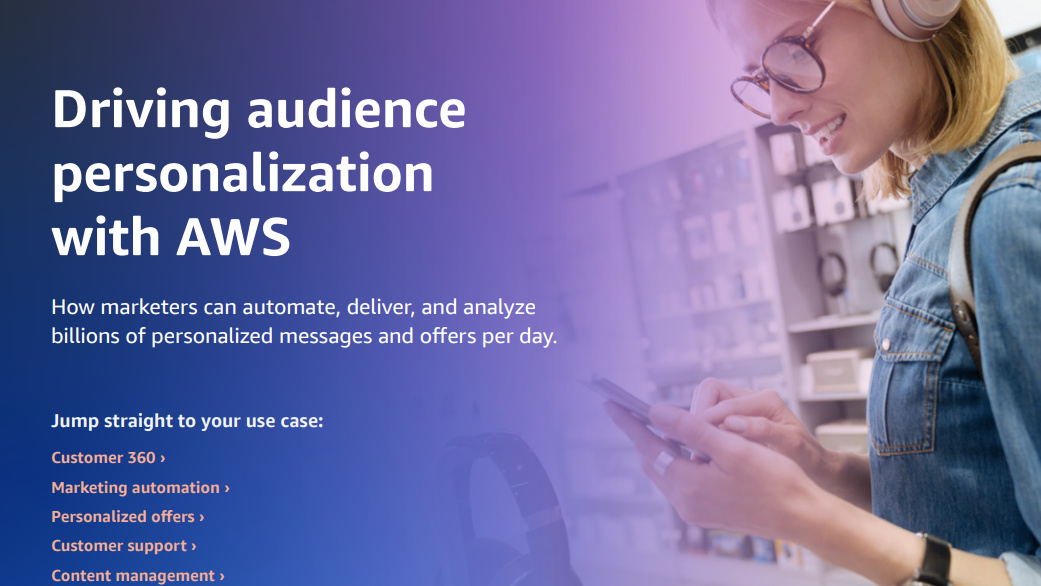Does your business need a chief AI officer (CAIO)?
As AI continues to impact every aspect of business, should your enterprise appoint a chief AI officer to navigate implementation and the changing compliance landscape?


Does your company need a chief AI officer, an AI ethicist, an AI ethics council, or perhaps all three? These have become vital questions for many companies across the world as artificial intelligence continues its spread into all areas of business.
As the evolution of AI tools accelerates, the appointment of a chief AI officer (CAIO) may be inevitable for most businesses and organizations. Indeed, some of the world’s most recognizable brands are creating these roles as part of their digital transformation efforts, including Schneider Electric, which appointed a CAIO in 2021, and Levi’s, which has had an AI leader since 2019.
Although the concept of a chief AI officer has existed for some time, today we have a much clearer picture of how the role, and the technology itself, might shape IT and business decision-making.
What is a chief AI officer (CAIO) and what skills define the role?
The role of chief AI officer is a C-suite level position, responsible for the overall strategy, acquisition, implementation, and monitoring of AI technology across a business. Given the ubiquitous nature of AI, a CAIO will need to juggle multiple responsibilities and understand their business inside out. Technical knowledge, regulatory awareness, and the ability to place their enterprise's AI development onto a strategic roadmap are essential, as is the ability to effectively communicate this information across a company.
“AI is increasing in importance when it comes to business operations and strategy,” Aaron McClendon, head of AI at Aimpoint Digital, explains to ITPro. “While a CIO, CDO or CTO could, ostensibly, pick up an AI brief, there is a case to be made for a specialist with a dedicated focus on AI with a seat on the Board.
“As AI technologies become more sophisticated and pervasive, businesses, particularly of a certain scale and heft, may need a dedicated leader to oversee AI initiatives, ensure ethical and responsible AI use, and drive AI-enabled innovation.”
More from the C-Suite
More than a technical role, the most effective CAIOs will come from diverse backgrounds, as the issues surrounding AI ethics, explainability, and discrimination will require specialized knowledge. A multi-disciplinary approach to defining and then hiring CAIOs is coming into focus as businesses realize the role requires more than technical expertise.
Sign up today and you will receive a free copy of our Future Focus 2025 report - the leading guidance on AI, cybersecurity and other IT challenges as per 700+ senior executives
"You’d expect a CAIO to be from a background in engineering or data science, but also Innovation and R&D,” says Jeff Watkins, chief product and technology officer at xDesign. “Depending on the scale of the organization, the CAIO may need to be more or less hands-on when it comes to the AI Strategy implementation. There’s quite a broad skill set in the world of AI, from NLP, computer vision and audio processing to IoT and robotics, but strategic and big-picture thinking will be key to a great CAIO.”
It’s also clear that the CAIO role will be massively collaborative. The reach that AI can have over a business, from IT to HR, will mean a CAIO must have the skills to manage what can be a highly diverse range of people, including the C-Suite. A technical foundation is a must, but so will interpersonal skills that can see and mitigate any friction between departments across an organization, all of whom will have their own drivers and challenges.
As Alistair Dent, chief strategy officer at data company Profusion, tells ITPro, often the CAIO will be more akin to a negotiator: “While it’s an innovation role at heart, the CAIO is also a change manager, a strategist, an ethicist, a compliance officer, and an enforcer. AI is being built into every technology product that organizations already use, so the risk of shadow IT being created in this space is significant, as is the risk of being left behind if it isn't used at all.”
Does your business need a chief AI officer (CAIO)?
Whether a business should hire a chief AI officer will depend entirely on its technical maturity, its plans for integrating the technology, and how much it’s willing to invest. Enterprises are all at different stages of their AI development. Where on that journey a company perceives itself to be will inform its decision on whether they need to appoint a CAIO.
Dr Maya Dillon, head of AI at Cambridge Consultants, part of Capgemini Invent, says: "When AI ambitions demand strategic vision, responsible AI practices, and successful implementation, hiring a CAIO becomes a catalyst for transformative success."
RELATED RESOURCE

Six steps to machine learning success
Read how to transform ML investments into competitive advantages.
However, not every business has the resources, or even inclination, to invest heavily in artificial intelligence, and many are simply looking to make operations more efficient.
“The reality is that businesses don't need a CAIO to get the most out of new AI products; rather, they need to understand that the foundations of a successful AI transformation, which are good data governance and utilization, and good digital literacy, can be better addressed by existing roles,” argues Caroline Carruthers, data cheerleader at Carruthers and Jackson.
“Organizations may think they need a CAIO because they see competitors hiring one, but the reality is this is just adding extra, unneeded complexity to your business at a time when it needs to be agile.”
Currently, companies and industries that focus heavily on data, such as healthcare or finance, will be the first to see the benefit of appointing a CAIO. However, the omnipresent nature of AI and the level of penetration it has across all businesses will mean most larger companies will need to have a CAIO to manage the implementation of their AI tools.
Many businesses have yet to define their AI strategy. For some, AI is an IT exercise, while others see AI as a personnel issue or simply part of their compliance responsibilities. Gero Renker, co-founder and director of portfolio, project and programme consultancy firm Program Framework says, for many businesses, a CAIO will be essential.
"Building a skilled resource pool and managing significant change because of AI innovation will require major investment. Without a dedicated CAIO, the organization may struggle to clearly understand the business case for this investment and subsequently fail to harness the AI opportunity. The opportunity is significant, particularly for businesses that heavily rely on data-driven decision-making, advanced analytics, and automation.”
Whether one person should or could take responsibility for AI will heavily depend on the business involved. The bespoke nature of the post and the volatility associated with the AI industry mean that some will need a dedicated person, acting in conjunction with the CTO and CIO, while others may opt for a team of specialists acting under an ‘office for AI’. Meanwhile, the rest will likely get by just fine without one.
David Howell is a freelance writer, journalist, broadcaster and content creator helping enterprises communicate.
Focussing on business and technology, he has a particular interest in how enterprises are using technology to connect with their customers using AI, VR and mobile innovation.
His work over the past 30 years has appeared in the national press and a diverse range of business and technology publications. You can follow David on LinkedIn.
-
 Google is scrapping its dark web report feature
Google is scrapping its dark web report featureNews Google said while the dark web report feature offered “general information”, the tool didn’t provide “helpful next steps” for users potentially impacted by a breach.
-
 AI means you're probably going to need bigger developer teams
AI means you're probably going to need bigger developer teamsAnalysis Software developers may be forgiven for worrying about their jobs in 2025, but the end result of AI adoption will probably be larger teams, not an onslaught of job cuts.
-
 AI in software engineering: Six ways the profession is changing
AI in software engineering: Six ways the profession is changingIn-depth The use of AI in software engineering has become one of the shining examples of how the technology can improve productivity – but how will it impact workers?
-
 Are we in the middle of a generative AI bubble?
Are we in the middle of a generative AI bubble?In-depth The massive expansion of generative AI has been nothing short of meteoric, but can the investment be maintained?
-
 Five useful examples of generative AI in action
Five useful examples of generative AI in actionIn-depth There are many promising examples of generative AI being used across a wide variety of industries – here are just some of the more compelling applications
-
 Machine learning vs data science: What’s the difference?
Machine learning vs data science: What’s the difference?In-depth Both machine learning and data science are fields that extract insights from data, but the methods vary significantly
-
 The best Google Analytics courses and certificates
The best Google Analytics courses and certificatesIn-depth Boost your marketing and audience development skills with some of the best Google Analytics courses and certificate programs around

